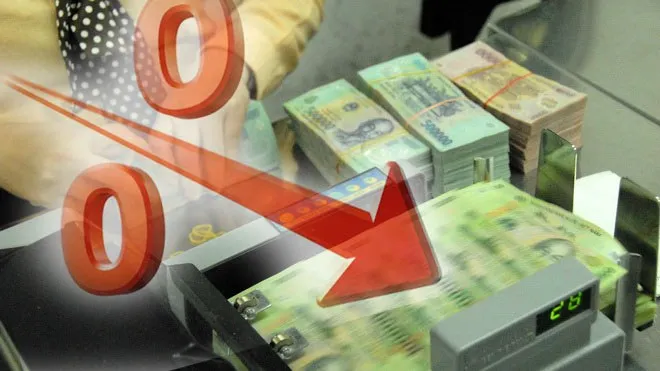
On the evening of 23 May, the State Bank of Vietnam surprised many when it decided to further reduce the operating interest rate and also the ceiling deposit interest rate for terms of less than six months. It was this surprise announcement that created the expectation that the stock market would have an explosive rally, but then all were left disappointed.
Market more aware
In the history of the stock market in Vietnam there has never been such frequent interest rate cuts. From March 2023 until now, the State Bank of Vietnam decided to reduce the operating interest rate three times, including two times for the ceiling deposit interest rate cut, which had a harder impact than the operating interest rate cut. Both times this occurred before the market was indicating a surge, but on this third time the stock market was almost aware of the oncoming news.
The first cut the market received was on 15 March when the VN Index increased by over 22 points. The second time the news was announced late at night on 31 March when the VN Index reacted in the next session on 3 April, increasing by nearly 15 points. However, the third time announcement came on the evening of 23 May, and the market in the next session on 24 May dropped by more than 4 points. It is clear that the stock market is gradually reacting less, although across forums and investment groups the joy is clearly seen through enthusiastic comments and looking forward to the market opening.
In fact, individual investors were very excited and had high expectations for the stock market to explode. The interest rate dive may reinforce hope and the proof is that during the last eight sessions when the stock market moved sideways, the VN Index approached a short-term peak of around 1,080 points with individual investors being continuous net buyers. Statistics show that the group of individual investors net bought 6 out of 8 sessions with a total net buying value of VND 4,081 bln, of which VND 3,121 bln was bought directly through order matching. This is a net buying phase that is even higher than the first two weeks of April with VND 2,749 bn through order matching.
Groups of individual investors often behave emotionally and react in a situational way to information. Indeed, the information about interest rate cuts was buzzed before an official decision was made. On 23 May 2023, the day before the news of the interest rate reduction, individual investors recorded net buying from the beginning of the year with VND 1,335 bln. On the day the market reacted completely to the news on 24 May, individual investors net bought another VND 678 bln.
Hence, it cannot be said that individual investors do not respond to information or have no expectations. Maybe other groups of investors sold out more strongly. Indeed, foreign investors and domestic institutional investors were net sellers. In this, domestic organizations were net sellers in 6 out of 8 sessions, in contrast to individual investors, and the net selling scale was about VND 2,290 bln. Foreign investors in general on HoSE only net sold in these 8 sessions about VND 720 bln, but there was a special agreement with STG worth VND 1,285 bln. Besides STG, foreign investors net sold more than VND 2,000 bln.
Not all is bad news
The buying and selling structure of the above groups of investors, although not necessarily determining the direction of the market moving up or down, showed different reactions. Individual investors are more inclined to have positive expectations, bet on the upside more, while foreign and institutional investors think otherwise and net sell more.
The interest rate reduction is a positive signal for the stock market, but how they react to the information is a very different story. This depends on the trading strategy of each group of investors. Individual investors are inclined to speculate and surf very quickly, so if the information is considered to stimulate the market to increase, they will buy more than sell. Institutional investors and large investors reacted more cautiously, because of their long-term view and large capital scale disbursement was slower. The fact that interest rates fall continuously, even too quickly and unexpectedly, is not necessarily a good thing, because sometimes good news can also be bad news.
The market has witnessed this kind of opposite view during the Covid 19 pandemic period, when so many people died and the lockdown halted production, it was still considered good news for the stock market because central banks would have to bail out, reduce interest rates, inject money, even issue cashless transactions. Or like now, the higher the risk of recession in the US, the more popular is the stock market because that will make the US Federal Reserve (FED) slow down the rate hike, or even stop and reverse interest rate cuts. When the information is positive about the economy, such as growth, more jobs, the stock market is worried because the FED has a reason to raise interest rates further.
The continuous reduction of interest rates in Vietnam at this time may cause the market to speculate about a very difficult situation of the economy, which means that the basic factors are not favorable for the uptrend of the stock market. Interest rates fall very quickly but the ability to absorb capital is very poor, as shown by the very low credit growth figure. The interest rate reduction may be an attempt to respond to a growing risk, which is why organizations are awaiting and preparing cautiously for a change in the situation.




















